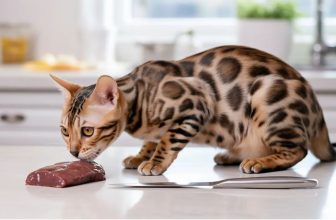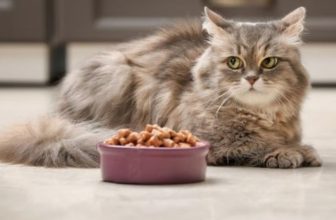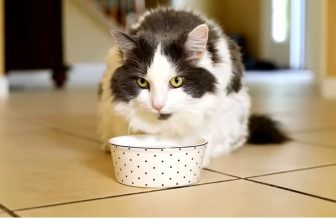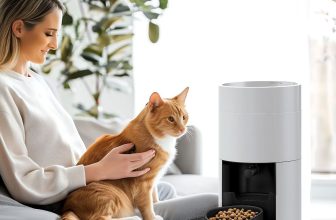Can Cats Eat Biscuits? Safety & Vet Advice Explained
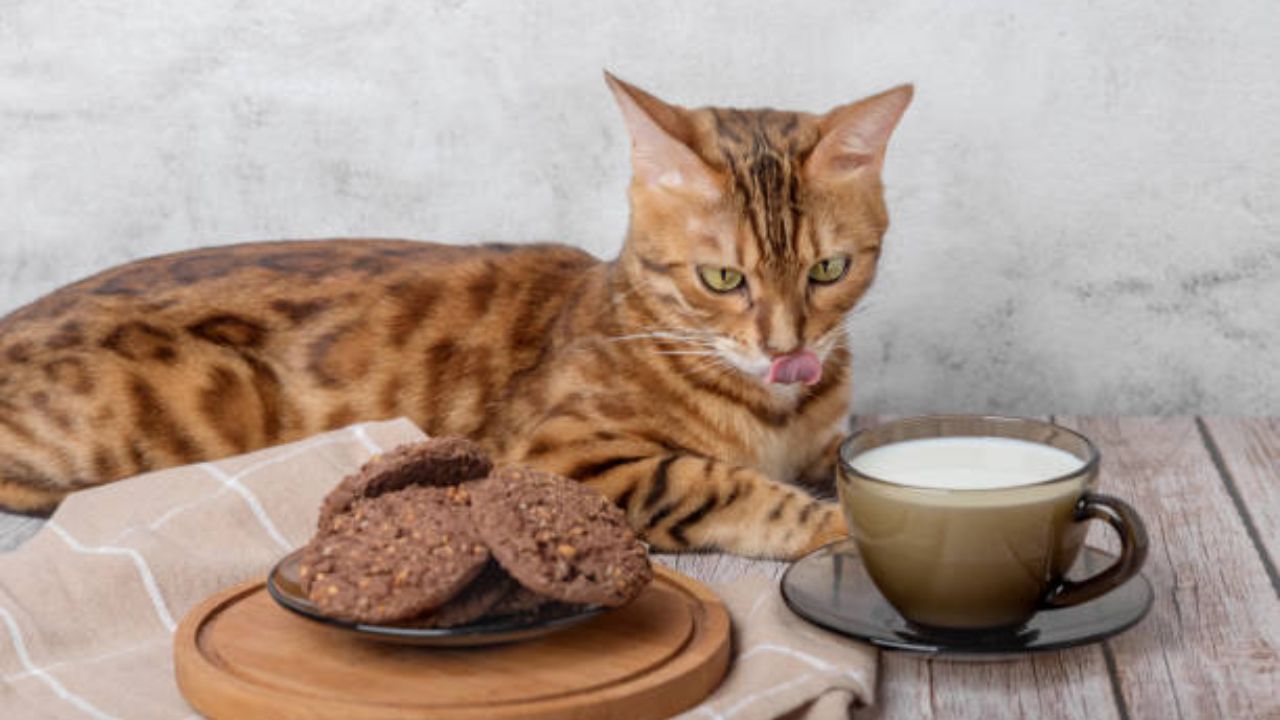
Can Cats Eat Biscuits? While it may seem harmless to share your biscuit with your cat, it’s not a healthy choice. Human biscuits often contain sugar, salt, and fats that are unsuitable for feline digestion. Cats have specific nutritional needs—they thrive on protein-rich, meat-based diets, not carbs or sweets. Regularly feeding them biscuits can lead to weight gain, digestive issues, and nutrient deficiencies. It’s best to stick with cat-safe treats designed to support their health. So, next time your cat eyes your biscuit, remember: it’s safer and smarter to offer them treats made just for cats.
Introduction To Cats And Biscuits
Cats are curious creatures. They are always sniffing around for food. Biscuits, often enjoyed by humans, can attract a cat’s attention. But is it safe for them? Understanding what foods are safe for cats is important. This helps keep them healthy and happy.
Can Cats Eat Biscuits?
Cats are obligate carnivores. This means they need meat to survive. Biscuits are not a natural food for them. They often contain ingredients like sugar and salt. These are not good for cats. Eating too many biscuits can lead to health problems.
Ingredients In Biscuits
| Ingredient | Effect on Cats |
|---|---|
| Flour | Not harmful but not beneficial |
| Sugar | Can cause obesity and diabetes |
| Salt | May lead to dehydration |
| Butter | Fatty can upset the stomach |
Alternative Treats For Cats
There are many safe treats for cats. These include:
- Cooked chicken
- Small bits of fish
- Catnip
- Commercial cat treats
Signs Of A Problem
Watch for signs if your cat eats something unusual. Vomiting and diarrhea are common signs. Lethargy or being less active can also be a warning. Always consult a vet if unsure.
Nutritional Needs Of Cats
Cats are curious creatures with unique dietary needs. While biscuits might seem like a tasty treat, they aren’t always suitable for our feline friends. Understanding the nutritional needs of cats is crucial for their health and well-being. Cats require a balanced diet rich in proteins, fats, vitamins, and minerals. This ensures they remain active and healthy. Let’s explore what essential nutrients your cat needs and the role protein plays in their diet.
Essential Nutrients
Cats are obligate carnivores, which means they need animal-based nutrients. Their diet must include specific elements to keep them healthy:
- Protein: Critical for muscle growth and repair.
- Fat: Provides energy and supports a healthy coat.
- Vitamins: Vital for immune function and overall health.
- Minerals: Important for bone development and cellular function.
Unlike other animals, cats cannot produce some essential nutrients on their own. They need taurine, an amino acid found only in animal proteins. Taurine deficiency can lead to serious health issues. Vitamins A and D are also necessary, as cats cannot convert beta-carotene or sunlight into these vitamins. Hence, a balanced diet that meets these needs is essential.
Feeding cats with foods meant for humans, like biscuits, might not provide these nutrients. It’s important to choose cat food that fulfills their dietary requirements. This ensures they get the right balance of nutrients to stay healthy and active.
Role Of Protein
Protein plays a significant role in a cat’s diet. It is the main energy source for cats. Unlike humans and dogs, cats rely heavily on protein for energy. The amino acids in protein are building blocks for muscles, skin, and fur. Without adequate protein, cats can suffer from muscle loss and poor coat condition.
Animal proteins are the best sources for cats. They contain complete amino acids that cats need. Foods like chicken, fish, and beef are excellent protein sources. Plant-based proteins do not provide the complete amino acids required by cats. Therefore, relying solely on them could lead to deficiencies.
It’s crucial to ensure that your cat’s diet includes sufficient protein. This supports their active lifestyle and keeps them healthy. Checking the protein content in cat food can help make the right choice. Ensure the food label lists a high percentage of protein. By doing so, your cat will receive the necessary nutrients to thrive.
Cats, with their curious nature, often show interest in various foods. Biscuits, a common human snack, are no exception. But can cats have biscuits? Understanding the types of biscuits suitable for cats is essential for their health. Cat biscuits can be a tasty treat if chosen wisely, offering both nutrition and enjoyment.
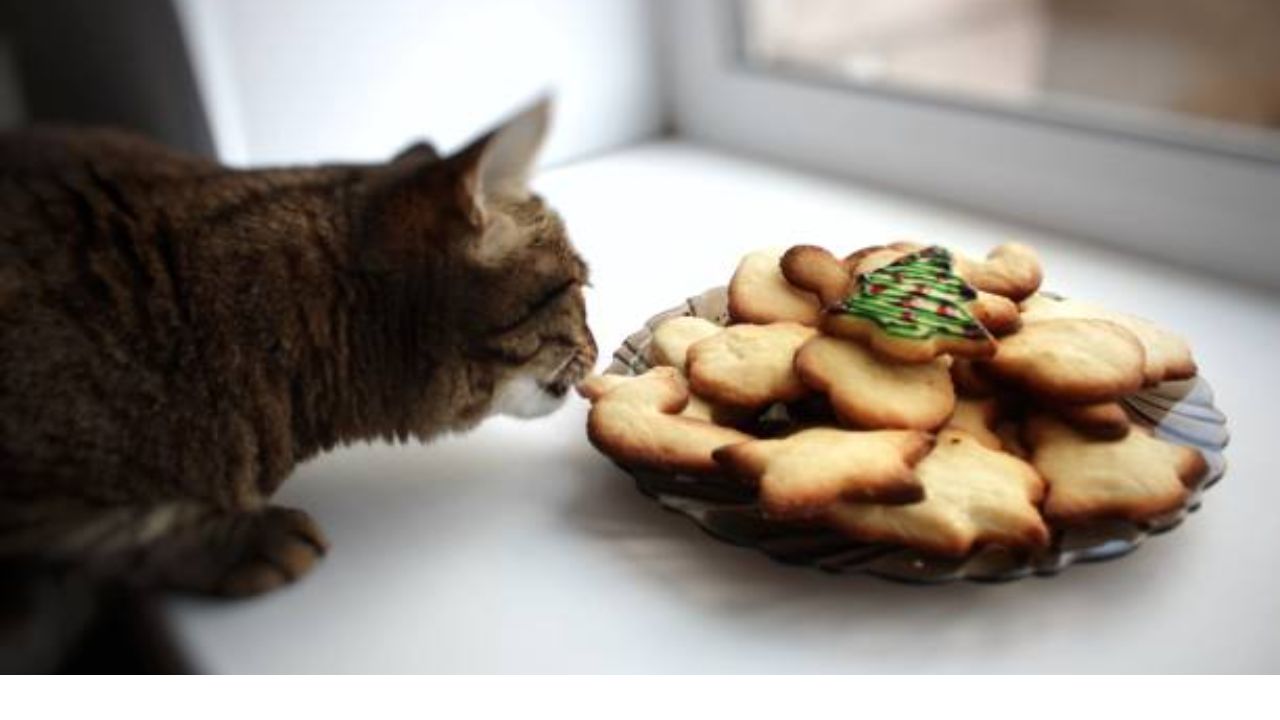
Commercial Cat Biscuits
Commercial cat biscuits are specifically designed for feline consumption. These biscuits are made with ingredients that are safe for cats. They often contain essential nutrients such as proteins, vitamins, and minerals. Here are some key points about commercial cat biscuits:
- Nutritional Value: Most brands offer a balanced diet.
- Flavor Variety: Available in chicken, fish, and beef flavors.
- Convenience: Easy to store and serve.
When choosing commercial cat biscuits, it’s important to check the label. Ensure there are no harmful additives or fillers. Some common ingredients to avoid are artificial colors, flavors, and preservatives. Here’s a simple table to help you compare popular brands:
| Brand | Key Ingredients | Price Range |
|---|---|---|
| Brand A | Chicken, Rice, Fish Oil | $$ |
| Brand B | Salmon, Peas, Vitamins | $$$ |
| Brand C | Beef, Corn, Omega-3 | $ |
Homemade Options
Making biscuits at home allows control over ingredients. Homemade cat biscuits can be both healthy and delicious. Here are some benefits of preparing biscuits at home:
- Fresh Ingredients: Use fresh meat and vegetables.
- Customizable Recipes: Tailor recipes to your cat’s taste.
- No Preservatives: Avoid unwanted chemicals.
Here’s a simple recipe to try:
- Ingredients: 1 cup cooked chicken, 1/4 cup carrots, 1 egg.
- Instructions: Blend ingredients, shape into biscuits, and bake at 350°F for 15 minutes.
Homemade biscuits should be stored properly. Use an airtight container to keep them fresh. Always introduce new treats slowly to your cat’s diet. Watch for any allergic reactions or digestive issues.
Potential Benefits Of Biscuits
Cats are curious creatures, always exploring their surroundings. They often show interest in our food. As pet owners, we might wonder if it’s safe to share some of our snacks with them. Biscuits are a common treat that many humans enjoy. But can cats have biscuits? Let’s explore the potential benefits of biscuits for cats. This includes how they might affect dental health and weight management.
Dental Health
Dental health is crucial for cats. Their teeth play a big role in their daily lives. They use them to eat, groom, and defend themselves. Keeping their teeth clean is important. Biscuits might help with this. Hard biscuits can scrape away plaque as cats chew. This can reduce the risk of dental issues. However, it’s not a substitute for regular dental care. Here are a few points to consider:
- Chewing hard biscuits can help clean teeth.
- Biscuits must be suitable for cats, not humans.
- Regular dental checks are still necessary.
It’s essential to choose biscuits made specifically for cats. Human biscuits might contain ingredients that are harmful to cats. Always check the ingredients list before offering any biscuits to your feline friend. A balanced diet and regular vet visits are key to maintaining good dental health.
Weight Management
Weight management is another important aspect of a cat’s health. Cats can easily gain weight if they eat too much. Biscuits can be a part of their diet, but they should be given in moderation. Here’s how biscuits can impact their weight:
- Biscuits can be high in calories.
- Overfeeding can lead to weight gain.
- Choose low-calorie biscuits for treats.
Obesity in cats can lead to several health problems. It’s crucial to monitor their weight and ensure they’re getting enough exercise. If you choose to give biscuits, make sure they are low in calories and don’t make up a large part of their diet. Balancing treats with regular meals will help in maintaining a healthy weight.
Risks Of Feeding Biscuits
Cats are known for their curious nature and unique dietary needs. Many pet owners wonder if they can share their snacks, like biscuits, with their feline friends. While it might seem harmless, feeding biscuits to cats can pose several risks. These crunchy treats can lead to health issues that may affect your pet’s well-being. Understanding the dangers associated with biscuits is essential for keeping your cat healthy and happy.
Allergic Reactions
Cats can be sensitive to certain ingredients found in biscuits. These reactions can vary from mild to severe, depending on the cat’s tolerance. Common signs of allergies include:
- Itching and scratching – Your cat may scratch excessively.
- Swelling or redness – Visible on the skin or around the face.
- Vomiting or diarrhea – Digestive issues may occur.
Biscuits often contain ingredients like wheat, dairy, or artificial flavors. These can trigger allergic reactions in cats with sensitive systems. Always check the label for potential allergens. Consult with a vet if you notice any unusual symptoms. A veterinarian can help determine if your cat has allergies.
Avoiding biscuits with common allergens is crucial. Opt for treats specifically made for cats. These are less likely to contain harmful ingredients. Remember, even small amounts of biscuits can cause problems.
Obesity Concerns
Feeding biscuits to cats can contribute to obesity. These snacks are typically high in calories and unhealthy fats. Cats need a balanced diet to maintain a healthy weight. Excessive treats can disrupt this balance. Obesity in cats leads to serious health issues.
- Joint problems – Extra weight strains the joints.
- Diabetes – Overweight cats risk of developing diabetes.
- Heart disease – Obesity increases the chance of heart problems.
Monitoring your cat’s weight is vital. Ensure they have a diet rich in nutrients, not empty calories. Limit biscuit intake to prevent weight gain. Instead, offer healthier alternatives like catnip or lean protein snacks.
Regular exercise helps maintain an ideal weight. Encourage your cat to play and stay active. This can reduce the risk of obesity and related health issues. Remember, prevention is key to a happy and healthy cat.
How To Choose The Right Biscuits
Cats have a reputation for being picky eaters. Owners often wonder about new snacks. A common question is: Can cats have biscuits? Understanding the right choice is crucial for your cat’s health. While some biscuits are safe, others aren’t. Choosing the right biscuits involves careful consideration. Look for ingredients that are safe and nutritious. Avoid harmful additives. This guide will help you make informed decisions. Your cat deserves the best, after all.
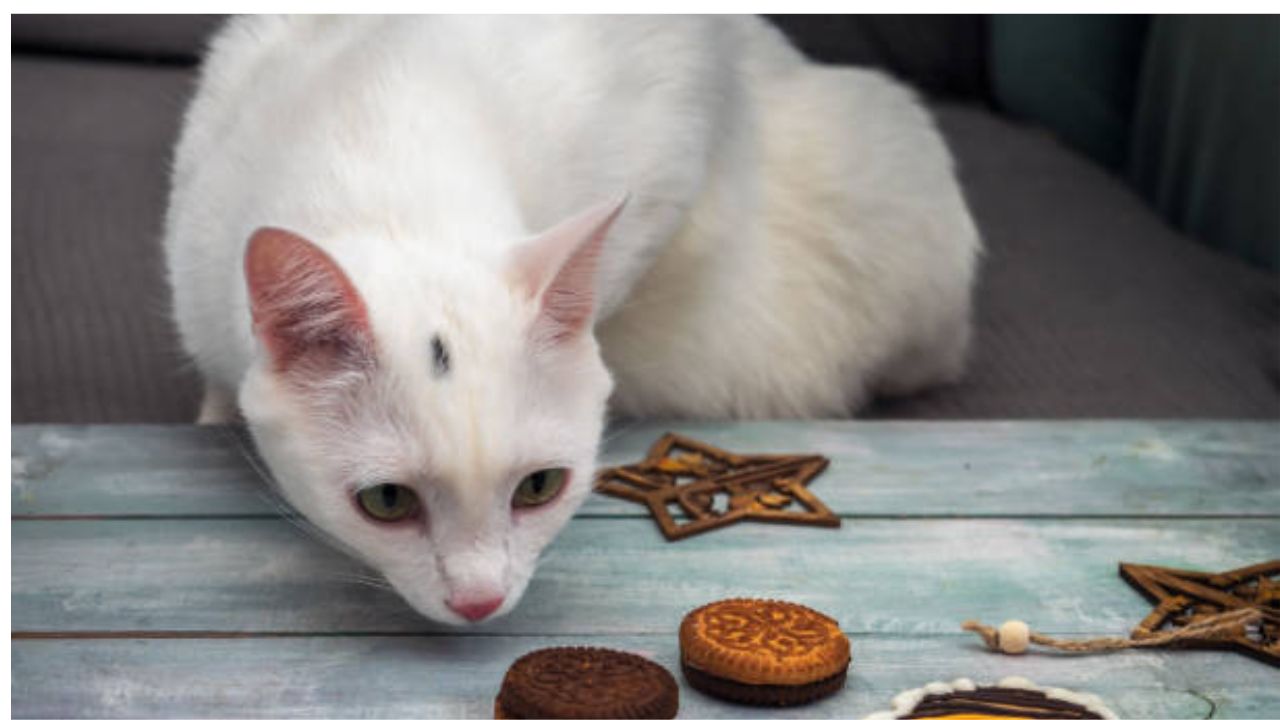
Reading Labels
Reading labels is essential when selecting biscuits for your cat. Labels provide information about ingredients and nutritional content. Key points to consider include:
- Check for protein content. Cats need high-protein diets.
- Look for natural ingredients. Avoid artificial additives.
- Identify the main ingredient. It should be meat or fish.
- Watch for sugar levels. Cats don’t need added sugars.
A simple table can help identify what to look for:
| Aspect | What to Look For |
|---|---|
| Protein | High content, preferably from meat |
| Ingredients | Natural, recognizable items |
| Sugar | Minimal or none |
Understanding these aspects can help ensure your cat’s health and happiness. Always read labels carefully.
Ingredients To Avoid
Certain ingredients can be harmful to cats. Recognizing these is important when choosing biscuits. Avoid these common culprits:
- Chocolate: Contains theobromine, toxic to cats.
- Onions and garlic can cause anemia in cats.
- Grapes and raisins: Can lead to kidney failure.
- Artificial sweeteners: Xylitol is dangerous for cats.
- Preservatives: BHA and BHT can be harmful over time.
These ingredients pose serious risks. Always double-check the list before buying. Ensuring your cat’s safety requires vigilance. Avoidance of these ingredients helps maintain their well-being.
Feeding Guidelines For Biscuits
Biscuits are a popular treat for humans, but can cats enjoy them too? Cats have specific dietary needs, and it’s important to be cautious about what they eat. Biscuits are not a natural part of a cat’s diet, but they can be offered occasionally. It’s essential to follow feeding guidelines to ensure your cat’s health and well-being. These guidelines include portion control and frequency of feeding. Understanding these aspects can help you make informed decisions about giving biscuits to your cat.
Portion Control
It’s crucial to manage the amount of biscuits your cat consumes. Cats have small stomachs and need controlled portions to avoid health issues. Here are some key points on portion control:
- Limit biscuits to a small portion. A few pieces are enough.
- Check for any allergic reactions. Cats can be sensitive to ingredients.
- Monitor your cat’s weight. Extra biscuits can lead to weight gain.
Consider using a table to track your cat’s biscuit intake:
| Day | Biscuits Given | Observations |
|---|---|---|
| Monday | 3 pieces | Normal behavior |
| Wednesday | 2 pieces | Active and playful |
| Friday | 4 pieces | Lazy, slight weight gain |
Frequency Of Feeding
Deciding how often to feed biscuits is just as important. Regular feeding can lead to problems, so controlling the frequency is necessary. Here are some guidelines:
- Offer biscuits once or twice a week. Avoid daily feeding.
- Observe your cat’s behavior. Note any changes after eating biscuits.
- Maintain a balanced diet. Biscuits should be a small part of the diet.
A consistent feeding schedule helps maintain your cat’s health. Ensure that biscuits are a treat, not a meal replacement.
Alternatives To Biscuits
Cats are curious creatures, and their owners often wonder about their dietary needs. Can cats eat biscuits? While cats might show interest in human food, their digestive systems are quite different. Biscuits are typically not recommended for cats due to their ingredients. These ingredients can include sugar, salt, and additives. All of which may be harmful to cats. Instead, exploring alternatives to biscuits ensures your cat receives proper nutrition. These alternatives can be both tasty and beneficial.
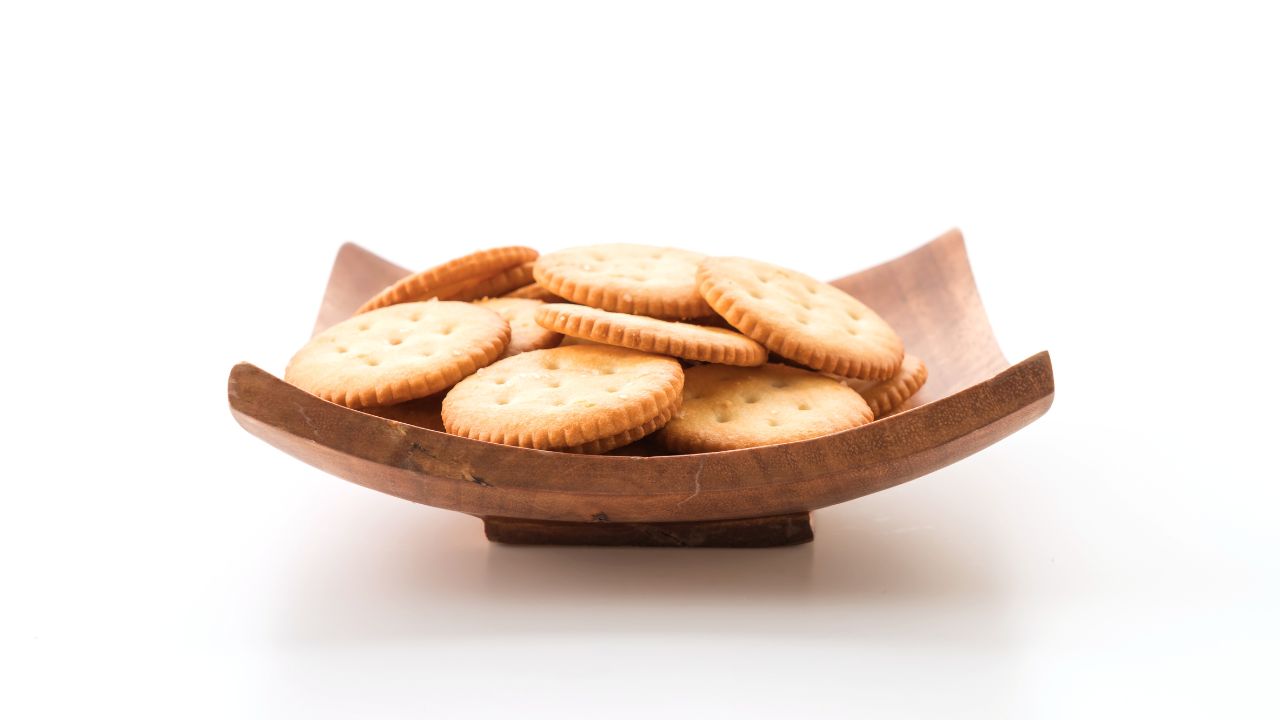
Wet Food Options
Wet food is a popular choice for cat owners. It offers hydration and nutrition. Cats often prefer the taste and texture. Here are some benefits of wet food:
- High water content helps prevent dehydration.
- Rich in protein, which is essential for cats.
- A variety of flavors keeps your cat interested.
Many brands offer wet food options. Some are specially formulated for specific needs. For instance, there are wet foods for kittens, seniors, and cats with allergies. It’s important to choose a high-quality wet food. Look for options with real meat as the first ingredient. Avoid foods with artificial colors and preservatives.
| Brand | Features |
|---|---|
| Brand A | Grain-free, high protein, real chicken |
| Brand B | Contains omega-3, good for the skin and coat |
Healthy Treats
Healthy treats can be an excellent alternative to biscuits. They provide nutrition and keep your cat happy. When choosing treats, focus on natural ingredients. Here are some options:
- Freeze-dried meat treats: Made from real chicken or fish.
- Catnip treats: Offer excitement and fun without added calories.
- Dental treats: Help maintain oral health while satisfying cravings.
Always check the label before buying treats. Avoid treats with excessive fillers and sugars. Moderation is key. Overfeeding treats can lead to weight gain. Use treats as a reward or for training.
Incorporating healthy treats into your cat’s diet can be beneficial. It adds variety and keeps your feline friend engaged. Remember, the goal is to provide balanced nutrition.
Frequently Asked Questions: Can Cats Eat Biscuits?
Is It Okay To Feed Cat Biscuits?
Yes, feeding cat biscuits is okay. Ensure they are high-quality and meet your cat’s nutritional needs. Always provide fresh water alongside. Consult your vet for specific dietary recommendations tailored to your cat’s health and lifestyle.
Can Cats Have A Piece Of Biscuit?
Yes, cats can have a small piece of biscuit occasionally. Ensure it’s plain, without chocolate or harmful ingredients. Biscuits should be a rare treat, not a regular snack. Always monitor your cat for any adverse reactions after eating. If uncertain, consult your veterinarian for advice.
What Biscuits Are Safe For Cats?
Cats can safely enjoy plain, unsweetened biscuits made specifically for them. Avoid biscuits with chocolate, raisins, or high salt content. Always check the ingredients and consult your vet for suitable options.
Should I Let My Cat Make Biscuits?
Yes, let your cat make biscuits. It’s a natural behavior that indicates contentment and comfort. Cats knead to express happiness and mark territory with their scent. Provide a soft surface for them to knead on. Encourage this behavior to strengthen your bond with your feline friend.
Can Cats Eat Human Biscuits Safely?
Cats should avoid human biscuits. They contain ingredients that can upset their stomach or cause health issues.
Conclusion
Cats often crave human food. Biscuits are not ideal treats for them. These contain ingredients that can upset their stomachs. High salt and sugar are harmful. Cats need balanced diets for health. Consult your vet before offering new foods. Homemade treats can be safer and healthier.
Always prioritize your cat’s well-being. Stick to foods meant for feline friends. Monitor any changes in behavior or health. Keep your cat happy and healthy. A little caution goes a long way.



